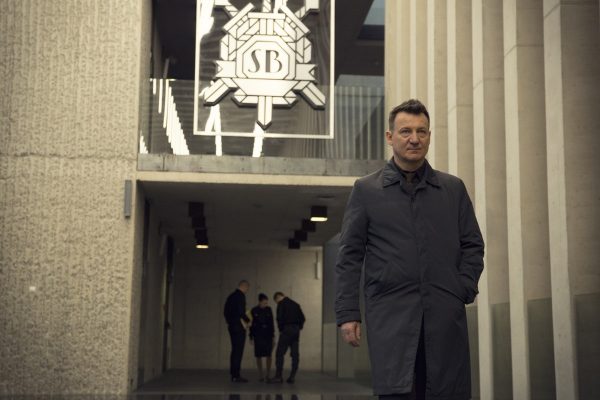
Dystopias are by definition fictional societies, but the Earth has had its share of factual ones. You don’t have to create a worst case scenario with a pretend political boogeyman with a history that includes people like Stalin and Mao, or countries like the Soviet Union or China. There have been so many that have featured an over-reaching surveillance culture exacting complete control over its populace, but some of that is starting to feel quaint considering what we willingly hand over to tech companies.
The Polish series 1983 hasn’t forgotten the real dystopias of the past and uses an alternate history structure to ask a question that is far less often posed in speculative stories than what would happen if the Nazis had won World War II. The series title refers to the year that Poland — which was looking ahead to the crumbling of the Iron Curtain, to inevitable democracy, to freedom from Russia — met with a destructive tragedy along the lines of a 9-11 event that transformed the mood of the country and set it on a much different course.
Violence on that scale boosts national pride and protectionism soon escalates, emboldening the Communist government to hunker down on its total control of its citizens, who now stare straight in the abyss of unknown threats and choose security and safety with all the consequences they bring.
The series focuses on police officer Anatol (Robert Więckiewicz) who’s investigating a suicide that he believes was a politically-motivated murder. Anatol meets law student Kajetan (Maciej Musiał) whose childhood role as one of those affected by the 1983 terrorist attacks made him a national symbol of hope. Now he’s having a moment of awakening after his mentor is murdered and a childhood friend returns — she’s working for an underground resistance movement. As Anatol’s investigation becomes entrenched Kajetan’s growing doubts about his country, several levels of police, political intrigue, organized crime, and radical resistance groups are revealed to create the kind of chaos jingoistic cover-ups tend to make unavoidable.
The parallels drawn to the current U.S. are strong and depressing. It looks at the stirring of nationalism as a means of control that relies on cheap sentiment and blind nostalgia to ensure its effectiveness and presents technology as a tool to stifle dissent and maintain order. Radicals make use of it, but in the hands of ordinary people, technology becomes a gilded cage. It’s an alluring show, but the message is probably too late to make a difference. Watching 1983 on a streaming network that comes to our living room via a networked device that possibly spies on our conversations and viewing habits adds an extra layer of irony to the experience.
Watch 1983 on Netflix
Cleverman
To a white person’s ears, the experience of people of color in the modern world can sound a lot like the description of living in a dystopia and Australia offers a stark example of this. In its own clunky but charming way, Cleverman addresses the terrible history of Aboriginal discrimination and persecution by doing something that has never happened on Australian TV before — offering representation in the form of an Aboriginal superhero that puts the Indigenous culture at the center of the show. Equally important, the series was created by Aboriginal writer and producer Ryan Griffen and features a cast that is 80 percent Indigenous. Cleverman is groundbreaking in a way most TV shows are not.
In the Australia of Cleverman, a mysterious humanoid race known as the Hairypeople steps right out of Aboriginal mythology and their place in Dreamtime and into the real world. What distinguishes the Hairypeople from humans is that their bodies are covered in hair and they possess super strength and ability. In parallels to the historical experience of Aborigines, the Hairypeople are herded into government-run camps, where they are forced to alter their physical appearances and give up their physical power in order to assimilate as second-class citizens.
In Aboriginal culture, a clever man is a shaman, and the show follows Koen West (Hunter Page-Lochard), an unlikely choice to become the new Cleverman. But as he transforms from a listless, cynical survivor to a protector, he realizes that more than his people need his help — the Hairypeople do as well. Against a backdrop of political corruption that involves even betrayal among the Aboriginal leadership, Cleverman becomes a nice mix of superhero action, political conspiracy, science fiction, and social commentary.
Superheroes are all the rage these days, but there’s nothing else quite like Cleverman around. The show’s use of Aboriginal lore empowers the culture it pulls from and uses it to not only advocate for that culture, but for any marginalized people in the world, including refugees who seek a safe home but are met with anger and hate. It’s refreshing to see an action/adventure genre show that holds such activism as important to its presentation.
Watch Cleverman on Netflix, Apple, Amazon, or YouTube
Knights of God
In the YA world, dystopian societies have overcrowded the landscape. It didn’t to be this way. Dour premonitions of oppressive regimes that mirrored either circumstances or fear of circumstances in the present certainly existed in fiction, but not in such huge numbers.
And many of those that were around aren’t necessarily remembered. It takes something extra clever for a dystopian concept to ring as true decades later as it did when it was first cooked up. Dystopian futures are, quite frankly, very of the time they were conceived in, a direct reaction to contemporary political concerns. Not many have the longevity of 1984, and a crowded market of current titles crowd out any underdogs from the past.
That’s why you rarely hear anything about Knights of God from old TV enthusiasts. It doesn’t help that it was only broadcast once in England, in 1987, so the audience of enthusiastic champions hoping to win the show its due is pretty limited.
As penned by Richard Cooper, who also wrote 1981’s excellent “The Prisoner for teens” called Codename Icarus, Knights of God portrays a not-too-distant future where a civil war has brought the United Kingdom under the rule of a religious order that runs its ranks like the military. Led by Prior Mordrin (John Woodvine), the Knights of God stress power and force and dismiss Christianity as a weak philosophy that casts humans as slaves. Building re-education camps for young dissidents across the country, the Knights a revolt in Wales.
The show features British science fiction legends like Patrick Troughton and Gareth Thomas as part of the Welsh rebellion, but it’s George Winter as the renegade Welsh teen Gervaise who’s the hero. Captured by the Knights and sent to a camp as part of a secret mission, Gervaise teams up with the plucky and capable Julia (Claire Parker) as he infiltrates the Knights.
We also get to see a lot of the inside workings of the Knights, centering around Modrin and his weaselly second in command, the sneering Brother Hugo, played with gusto by the mole-like creator of Downton Abbey, Julian Fellowes. Brother Hugo’s plotting and backstabbing is a direct threat to Modrin, and he also adds an element of homoeroticism to the show that feels subversive in context of its subject matter.
There are some gray areas in the show’s political stance — for instance, casting the royal family and the Church of England as the good guys — that feel like they are lost to the era it aired in, but that only the makes the show more fascinating to me. It stands up well as an extreme oddity of children’s TV and as an enjoyable-though-grim adventure.
Watch Knights of God on YouTube
Transferts
Dystopian societies often result from a shining new technology that is supposed to improve the human experience but instead inspires fear, which then leads to police state tactics. This French series introduces a world that offers body-to-body mind transfers, unfortunately, a technology mostly used by rich people seeking immortality. Now illegal, an elite police squad is charged with tracking down those who have gained a new body through the black market.
Enter Florian (Arieh Worthalter) a mild, mannered woodworker who accidentally ends up in a coma and wakes up several years later in the body of one of those elite policemen, thanks to the efforts of his wife to save him even through illegal means.
In the body of Sylvain Bernard, Florian stresses out trying to not arouse suspicion by doing his best at the job of tracking down illegal transfers, but that also means trying to keep two fellow cops at bay — his unsuspecting girlfriend Beatrice (Brune Renault) and his collaborator in secret hate crimes Gabriel (Steve Tientcheu). As he becomes more immersed in the role he’s forced to play, his relationship with his wife becomes a struggle.
At the same time, Florian becomes involved with a body trafficker, Woyzeck, who has been transferred into the body of a little girl (Pili Groyne). When their goals coincide, Woyzeck infiltrates Florian’s family with a tough and menacing glee that’s one of the highlights of the show — it’s a fantastic performance by a kid.
And, as if you really needed this, you can toss into the mix an all-seeing, futuristic update of Catholicism that pushes its influence into the police and hides its own corruption.
There’s a lot to cover story-wise, and a lot of social commentary to accompany it, but Transferts manages to handle everything it grabs, with intense and intriguing storytelling and fully fleshed-out characters brought to the screen through great performances. This series only ever needed to be a silly bit of science fiction fun, but it manages to achieve so much more, and the real revelation is how much better Transferts is than it ever really needed to be.
Watch Transferts on Netflix
Trepalium
Walls are designed to keep undesirables out, but one consequence of them is that they keep the fearful imprisoned. Division, in that scenario, is inevitable, and in our entertainment, rebellion always follows. In portraying this, Trepalium is a fairy tale setting, a French city where the minority 20 percent of employed citizens are kept safe on the nice side of the wall, while the remaining 80 percent is abandoned to poverty on the other side, known as the Zone.
The prime minister of Trepalium (Ronit Elkabetz) decides to enact a worker program bringing some from the Zone over in a bid to promote peace between the sectors. Izia (Leonie Simaga) signs on, hoping to improve conditions for herself and her son, but becomes embroiled in her employer’s scheming when he notices that Izia and his wife are exact lookalikes. When the wife disappears, he forces Izia to help him cover up and take her place.
Izia’s predicament is part of a larger cascade of events, including the inevitable rebellion, the prime minister’s family squabbles, political backstabbing in regard to the workers’ program, and the daily dangerous life of people in the Zone. And though neither side of the wall is any place you would choose to live, the supposedly cushy world of the employed can be just as life-threatening as the Zone.
In some ways, the execution of the ideas is odd, if only for the strange retro-futuristic wardrobe of the employed, but the drama and suspense will keep you preoccupied, and you might even find some choice parallels with oppressive divisions in real-life locales like Israel and maybe, if we get our own wall, America.
Watch Trepalium on Shudder or Sundance


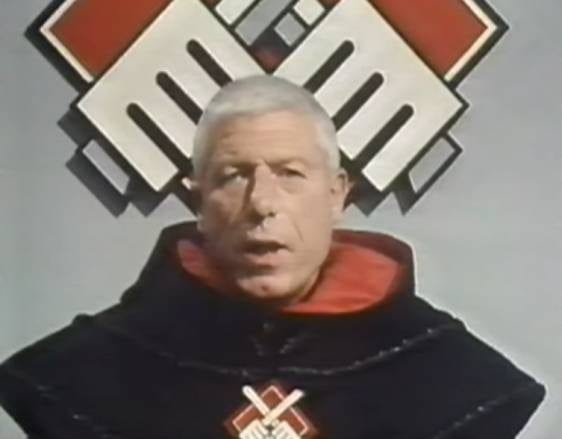
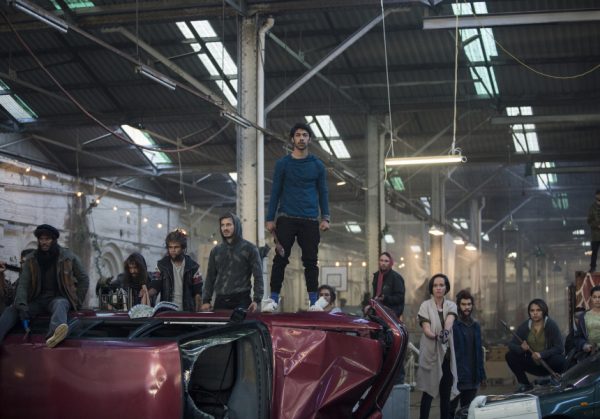
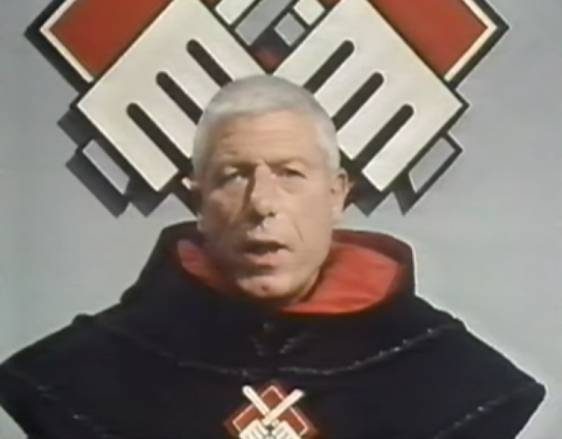
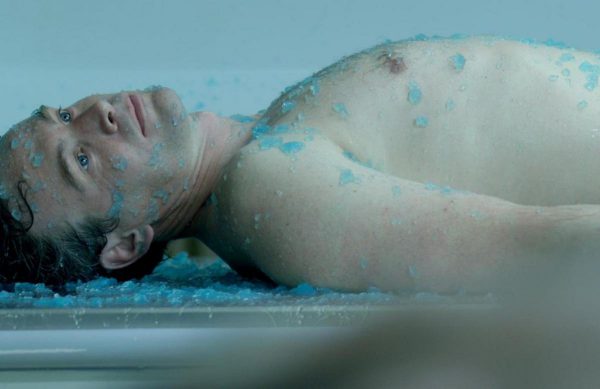


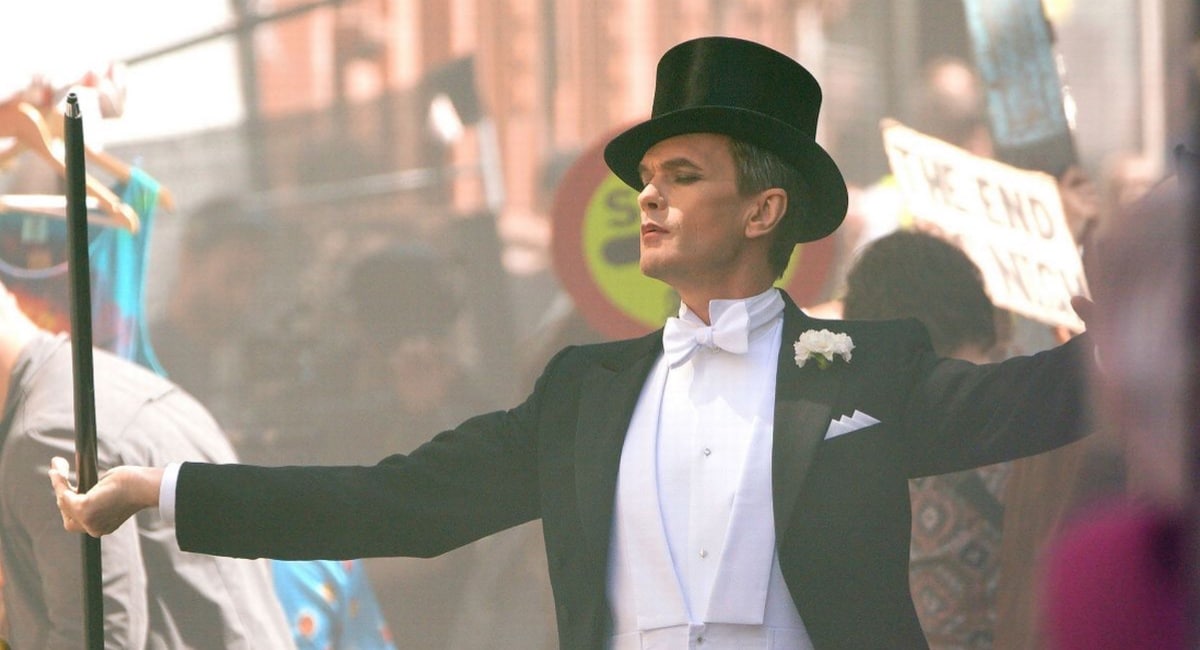





How about CNN?
I wholeheartedly agree with the Cleverman recommendation. It isn’t perfect, but it really revitalises the whole Mutant Metaphor “superpowered people or supernatural beings as metaphor for real-world oppressed minorities” idea, which at the time I thought had become an outdated cliche that was being used in lazy, symplistic, or outright offensive ways, often as a means of demanding audience sympathy for characters who really didn’t deserve it. (Tip: include actual oppressed groups, portray them in depth, and think seriously about how the fantastic and real-world dynamics will affect each other.)
Comments are closed.